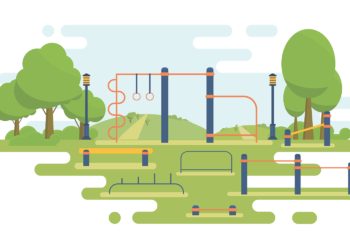No doubt, the job description of a campus rec planner in facilities and institutions of all sizes can read like the deployment strategy for a military campaign. Lots of assets to prepare and position, lines of communication to be established, reporting and feedback to the senior command – and of course, structuring and charging the front line of student employees to put their backs into creating the best user experience possible.
But those who have been at the job for a while know the reality is a little different than that. It often has to do with those “other duties as required” — activities that are not always specified, but are every bit as important as those detailed in a job description. Such as the responsibility to provide an opportunity for student-employees to set a foundation for a life long, successful work experience after graduation.
The sincere desire on the part of campus rec planners and managers to help students learn to become successful is something that usually can’t be mandated. It’s rooted in the family-like culture of the institution or campus rec community with a long-standing tradition of encouraging and nurturing students.
So while a campus rec facility may be organized like the military, the campaigns are executed in a very different type of environment — one that requires responsible participation and leaves room for personal learning and growth.
Striking a Balance Between Performance and Learning
A facility manager’s first priority is to ensure his or her venue is properly resourced to provide a positive user experience. But in doing so, he or she sets the stage for student-employees to achieve two objectives: master “building block” skills and competencies, and understand why these are so important to have in the post-graduate work environment.
These skills and competencies include:
- Positive Work Attitudes — such as commitment and a customer service focus
- Productive Work Habits — such as dependability, perseverance, initiative, responsibility and accountability
- Time Management Skills — both on the job and getting to the job
- Collaboration and Teamwork — to accomplish goals and create relationships
- Communication Skills — with managers, co-workers and facility users
- Balancing Work, Study and Life — discovering that each has a time and place for the student’s full attention.
An Assist from Technology
The technical resources now available to campus rec planners and schedulers obviously have made them more efficient in managing facilities. But, it’s also served to facilitate and reinforce students’ acquisition of these important skills.
With mobile and web-based messaging, calendaring, schedule-swapping and shift reminders, students are learning these lessons in a language they know — and one that can teach them faster and more efficiently than ever before.
Bob Cote is the founder & CEO of SubItUp. For more information visit subitup.com










